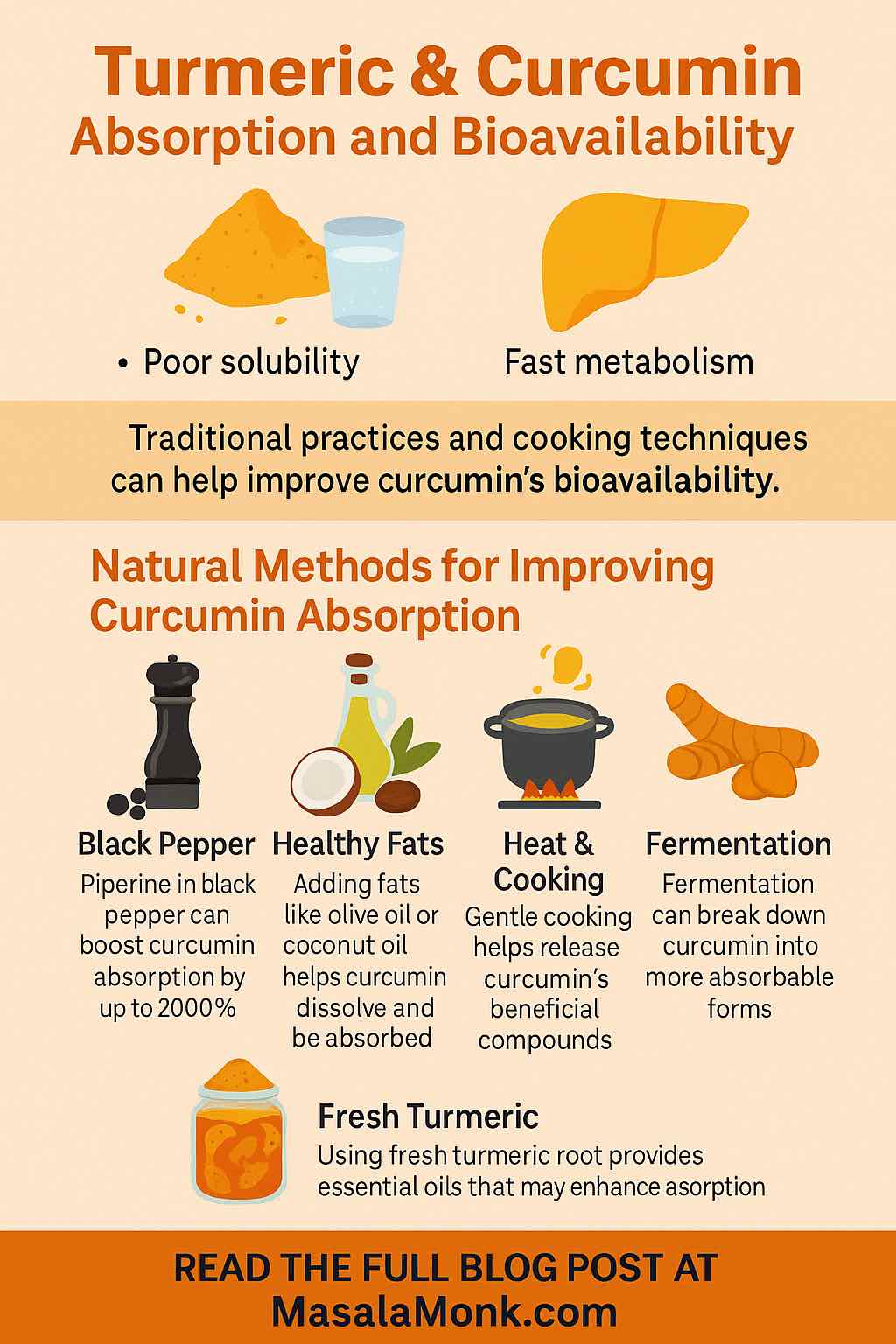
Vitamin B12 is one of those nutrients your body can’t live without — yet it’s surprisingly easy to fall short without even realizing it. This vitamin is essential for making healthy red blood cells, supporting your nervous system, producing DNA, and keeping your brain sharp and your energy levels stable. When your body doesn’t get enough, the effects can sneak in slowly, often disguised as everyday problems like tiredness, poor sleep, or difficulty focusing. And as you will discover, these are not the only symptoms of Vitamin B12 deficiency, that you would be concerned about.
The tricky part is that vitamin B12 deficiency doesn’t always look dramatic in the beginning. You might brush off the early warning signs as “just stress” or “getting older.” But if the deficiency continues unchecked, the symptoms can intensify and even become permanent. According to Harvard Health, B12 deficiency can be “sneaky and harmful,” gradually progressing from mild fatigue to nerve damage, memory loss, and mood changes【health.harvard.edu】.
That’s why it’s so important to recognize the signs early. In this article, we’ll explore the most common symptoms of vitamin B12 deficiency, as well as some of the unusual or overlooked signals that many people don’t associate with this vitamin. Whether you’re feeling constantly tired, experiencing brain fog, or noticing changes in your skin, hair, or nails, understanding these clues can help you take action before the damage becomes serious.
Do not miss reading Vitamin B12 Rich Foods to Eat
Common Symptoms of Vitamin B12 Deficiency
Vitamin B12 deficiency can show up in different ways depending on how long you’ve been low and how severe the deficiency is. Still, there are a handful of classic signs that appear again and again, and they’re often the first red flags doctors notice.
Fatigue, Weakness, and Low Energy
Perhaps the most common sign of low vitamin B12 is an overwhelming sense of tiredness and weakness. This isn’t the kind of fatigue you fix with a nap or a cup of coffee — it’s a deeper exhaustion that lingers throughout the day. That’s because B12 is needed to make healthy red blood cells, which carry oxygen to your body’s tissues. Without enough, your cells are literally starved of oxygen, leaving you feeling constantly drained and short of breath.

The NHS describes “extreme tiredness, lack of energy, and muscle weakness” as hallmark signs of B12 deficiency anemia【nhs.uk】. Many people don’t realize how depleted they feel until treatment brings their energy back.
Pale or Yellow-Tinged Skin
A lack of vitamin B12 can also show up in your skin. People with deficiency often appear paler than usual, or in some cases, the skin may take on a yellowish tint. This happens because fragile red blood cells break apart more easily when B12 is low, releasing a yellow pigment called bilirubin.

Medical News Today notes that pale or jaundiced skin is one of the most recognizable outward symptoms of B12 deficiency【medicalnewstoday.com】. If friends or family comment that you “look a bit off” or “washed out,” it may be more than just a rough week — it could be your body signaling low B12.
Headaches, Dizziness, and Vertigo
Another common set of symptoms includes frequent headaches, dizziness, or feeling lightheaded, especially when standing up suddenly. These happen because fewer red blood cells mean less oxygen reaching the brain. In some cases, people even experience vertigo, where the room feels like it’s spinning.

Both Harvard Health and Medical News Today list dizziness and headaches as early neurological signs of B12 deficiency【health.harvard.edu】【medicalnewstoday.com】. For older adults, this can be particularly dangerous, as dizziness increases the risk of falls.
Digestive Problems and Appetite Loss
Low B12 doesn’t only drain your energy — it can also upset your stomach. Many people report loss of appetite, nausea, and digestive changes. Some develop diarrhea or loose stools, while others notice unexplained weight loss if the deficiency persists.

According to the NHS, digestive problems such as appetite loss and nausea are common with B12 or folate deficiency anemia【nhs.uk】. Because these symptoms overlap with many other conditions, they’re often overlooked until other signs — like fatigue or tingling in the hands and feet — appear alongside them.
Neurological and Cognitive Symptoms of Vitamin B12 Deficiency
Beyond energy and digestion, vitamin B12 plays a vital role in keeping your brain and nervous system healthy. When levels drop, your nerves can’t communicate properly, leading to a wide range of neurological symptoms. Some of these may be mistaken for stress, aging, or mental health problems, but in reality, they may be your body’s way of crying out for more B12.
Brain Fog and Trouble Concentrating
One of the earliest neurological symptoms is what many describe as “brain fog” — a feeling of mental cloudiness, poor concentration, and slower thinking. Everyday tasks may suddenly feel overwhelming, and you might struggle to stay focused at work or remember small details.

The Times of India highlights brain fog, confusion, and forgetfulness as common but under-recognized effects of low B12【timesofindia.indiatimes.com】. If your mind doesn’t feel as sharp as it used to, it could be more than just fatigue — B12 may be playing a role.
Memory Problems and Forgetfulness
Vitamin B12 deficiency can also affect memory. You might find yourself forgetting conversations, misplacing objects, or missing appointments. In older adults, these lapses are sometimes misdiagnosed as dementia or Alzheimer’s disease.
Fortunately, in many cases, memory problems caused by B12 deficiency can improve once levels are corrected. The Cleveland Clinic notes that confusion, memory loss, and cognitive decline are well-documented in untreated B12 deficiency【my.clevelandclinic.org】.
Tingling, Numbness, and Burning Feet
Low B12 is notorious for causing nerve-related symptoms. Tingling, pins-and-needles sensations, or numbness in the hands and feet are common, as is a burning feeling in the feet — especially noticeable at night. This condition, known as peripheral neuropathy, happens because the protective covering around nerves (myelin) begins to break down.

WebMD confirms that vitamin B12 deficiency is one of the causes of burning feet syndrome【webmd.com】, while Verywell Health lists tingling and numbness in the feet among the first neurological signs【verywellhealth.com】.
Muscle Weakness and Cramps
Without enough B12, your muscles may not receive the signals they need from the nervous system. The result can be frequent cramps, muscle weakness, or twitching. Even everyday tasks like climbing stairs, carrying groceries, or typing can start to feel unusually difficult.
Healthline also points out that muscle weakness and cramps are frequent complaints among people with low B12 levels【healthline.com】.
Balance Problems and Clumsiness
As nerve damage progresses, some people develop balance issues and poor coordination. You may feel unsteady when walking, stumble more often, or notice difficulty with fine motor skills. These symptoms are particularly concerning in the elderly, where they increase the risk of falls.
Harvard Health lists difficulty walking and maintaining balance as red-flag neurological signs of B12 deficiency【health.harvard.edu】.
Mood Changes, Anxiety, and Depression
Low B12 doesn’t just affect your body — it can alter your mood too. This vitamin is needed to produce brain chemicals like serotonin and dopamine, which regulate emotions. Without it, you may feel irritable, anxious, down, or even depressed.

In more severe or prolonged cases, deficiency can lead to paranoia, hallucinations, and even psychosis. The Cleveland Clinic warns that untreated B12 deficiency may contribute to significant mental health changes if ignored【my.clevelandclinic.org】.
Skin, Hair, and Nail Symptoms of Vitamin B12 Deficiency
Vitamin B12 deficiency doesn’t just affect your energy and nerves — it can also show up in your skin, hair, and nails. Because B12 is crucial for cell growth and renewal, low levels may cause changes in your appearance that people often notice before they connect the dots to nutrition.

Itchy Skin and Unexplained Rashes
Some people with low vitamin B12 develop persistent skin problems, including itchiness, blotchy patches, or rashes. These changes are believed to result from increased levels of bilirubin in the blood, which happens when fragile red blood cells break down.
The B12 Institute in the Netherlands notes that skin problems, including rashes and unexplained itchiness, are among the varied symptoms of deficiency【b12-institute.nl】. Because skin issues have many possible causes, this connection is often overlooked.
Glossitis and Painful Mouth Ulcers
One of the classic physical signs of B12 deficiency is glossitis — an inflamed, red, and often painful tongue. The surface may look smooth and swollen, and eating or speaking can become uncomfortable. Alongside this, many people also develop mouth ulcers or canker sores, which may come and go.
According to Medical News Today, glossitis and oral ulcers are among the first visible symptoms of B12 deficiency【medicalnewstoday.com】. Healthline also highlights glossitis as a hallmark feature, describing how it can make food taste different or lead to burning sensations in the tongue【healthline.com】.
Premature Greying and Hair Changes
While greying hair is usually linked to genetics, some research suggests that vitamin B12 deficiency can accelerate premature greying. This may be due to B12’s role in DNA synthesis and red blood cell production — when disrupted, it affects the supply of nutrients to hair follicles.
The B12 Institute lists early greying as one of the many appearance-related symptoms of deficiency【b12-institute.nl】. If you’re noticing greys earlier than expected, it may be worth considering whether nutrition is part of the picture.
Brittle, Weak, or Ridged Nails can be Symptoms of Vitamin B12 Deficiency
Another area where B12 deficiency shows up is in your nails. They may become brittle, thin, weak, or develop ridges. In some cases, spoon-shaped nails (concave nails) appear due to the anemia linked with long-term deficiency.
Again, the B12 Institute mentions brittle nails and nail ridges as signs to watch for, particularly when combined with fatigue or neurological symptoms【b12-institute.nl】.
Why These Skin, Hair, and Nail Changes Matter
These outward signs may seem minor compared to fatigue or memory loss, but they’re important. Your skin, hair, and nails are fast-growing tissues that depend on a steady supply of nutrients. When B12 is missing, they’re among the first places the deficiency shows itself. Paying attention to these clues can help you catch low B12 before more serious nerve or brain-related complications set in.
Unusual Symptoms of Vitamin B12 Deficiency
When people think of vitamin B12 deficiency, they usually picture fatigue, tingling in the feet, or memory problems. But what many don’t realize is that low B12 can also cause a set of lesser-known symptoms that seem unrelated at first glance. Because these are so unusual, they’re often missed — delaying diagnosis until the deficiency becomes more serious.
Here are some of the surprising ways low B12 can show up in your body.

Excessive or Unexplained Sweating
One lesser-known symptom of vitamin B12 deficiency is excessive sweating, even when you’re not exercising or in hot weather. Some people describe breaking into sweats while sitting still or doing light activity. This may be related to disruptions in the autonomic nervous system, which regulates body temperature.
The B12 Institute notes that unusual sweating is among the diverse symptoms seen in people with deficiency【b12-institute.nl】. Since sweating can be linked to anxiety, menopause, or thyroid problems, it’s not always recognized as a potential sign of low B12.
Cold Hands and Feet can be Symptoms of Vitamin B12 Deficiency
Do your hands and feet feel icy cold most of the time? B12 deficiency can reduce red blood cell production, leading to poor circulation and less oxygen delivery to extremities. As a result, your hands, fingers, toes, and feet may feel cold, even in warm environments.
Revere Health highlights cold extremities as a sign of anemia, often caused by B12 deficiency【reverehealth.com】. Similarly, Verywell Health explains that vitamin-related anemia reduces oxygen transport, which can leave people chronically cold【verywellhealth.com】. Even Rush University Medical Center lists “cold hands and feet” among the symptoms of pernicious anemia, a severe form of B12 deficiency【rush.edu】.
Blurred Vision and Dry Eyes
Low B12 can sometimes damage the optic nerve, leading to blurred vision, double vision, or sensitivity to light. Some people also experience dry, irritated eyes, likely related to nerve disruption in tear production. While not everyone with low B12 develops eye symptoms, they are an important warning sign when present.
According to Wikipedia and the NHS, optic nerve damage and visual disturbances are recognized complications of prolonged B12 deficiency【en.wikipedia.org】【nhs.uk】.
Auditory Hallucinations and Severe Neurological Effects
In severe, long-term cases, vitamin B12 deficiency can progress beyond tingling or brain fog to cause serious neurological problems. These may include hallucinations, paranoia, or even psychosis. Though rare, these effects highlight just how critical B12 is for proper brain function.
The Cleveland Clinic warns that untreated pernicious anemia and chronic B12 deficiency can lead to confusion, mood changes, and hallucinations【my.clevelandclinic.org】.
Why we need to pay attention to unusual Symptoms of Vitamin B12 Deficiency
These symptoms may sound odd, but they’re valuable clues. Because sweating, cold extremities, or blurred vision are not usually linked with nutrition, people often chase other explanations for months. By keeping vitamin B12 on the radar, you can catch deficiency early and prevent long-term damage.
Symptoms of Vitamin B12 Deficiency in Special Groups
Vitamin B12 deficiency can affect anyone, but it doesn’t always look the same for everyone. Certain groups — like women, older adults, and those following plant-based diets — are especially vulnerable. Because their risk factors and life circumstances differ, their symptoms may also show up in unique ways.
How Symptoms of Vitamin B12 Deficiency show in Women?
In women, low B12 often shows up as chronic fatigue, mood swings, brittle nails, and hair changes. Some women also report irregular periods or heavier menstrual cycles, which can worsen anemia. Because these symptoms are often brushed off as stress or hormonal imbalance, the deficiency may go unnoticed.
The NHS notes that B12 deficiency can cause tiredness, headaches, irritability, and changes in appearance, including pale skin【nhs.uk】. These overlap heavily with issues women commonly face, making it easy to miss the underlying cause. If you are feeling constantly drained or dealing with unusual changes in your skin, hair, or mood, it’s worth asking your doctor to test your B12 levels.
Pregnant women with B12 deficiency face unique challenges. Learn more about anemia in pregnancy and how to manage it
Older Adults and the Elderly
As we age, our bodies naturally produce less stomach acid, which is needed to absorb vitamin B12 from food. That’s why older adults are at a higher risk of deficiency.
In seniors, B12 deficiency may mimic other age-related conditions. Common signs include:
- Memory problems, confusion, and forgetfulness
- Balance issues and frequent falls
- Numbness or tingling in the feet
- Depression or personality changes
The Cleveland Clinic explains that older adults with B12 deficiency are sometimes misdiagnosed with dementia or Alzheimer’s, when in fact low B12 is the cause【my.clevelandclinic.org】. Early treatment can often improve these symptoms, highlighting why testing is so important in this group.
Symptoms of Vitamin B12 Deficiency in Vegans and Vegetarians
Vitamin B12 is found naturally in animal products such as meat, fish, eggs, and dairy. This means that vegans and strict vegetarians are at much higher risk of deficiency if they don’t get enough from supplements or fortified foods.
In plant-based eaters, symptoms of deficiency often include:
- Extreme fatigue and weakness
- Brain fog and difficulty concentrating
- Mood changes such as irritability or anxiety
- Pale skin and low energy levels
Healthline emphasizes that vegans and vegetarians must be especially mindful of their B12 intake since plant foods don’t naturally contain this vitamin【healthline.com】. Many rely on fortified plant milks, nutritional yeast, or daily B12 supplements to meet their needs.
People with Digestive Disorders
If you live with digestive conditions such as Crohn’s disease, ulcerative colitis, celiac disease, or chronic gastritis, your body may struggle to absorb B12 properly. The same is true for those who have had bariatric (weight-loss) surgery — since part of the stomach or small intestine is bypassed, absorption is significantly reduced.
Symptoms in this group often include:
- Persistent diarrhea or bloating alongside fatigue
- Tingling in the hands and feet
- Unexpected weight loss
- Mouth ulcers and tongue pain
The National Institutes of Health (NIH) highlights that malabsorption is one of the leading causes of B12 deficiency【nih.gov】. For these individuals, oral supplements may not be enough — regular injections or high-dose formulations are often required.
People on Certain Medications
Some widely used medications can quietly deplete your vitamin B12 stores. These include:
- Metformin (used for type 2 diabetes)
- Proton pump inhibitors (PPIs) like omeprazole or lansoprazole (used for acid reflux/GERD)
- H2 blockers (used for ulcers and heartburn)
Over time, these drugs interfere with stomach acid or absorption pathways needed for B12 uptake. If you’ve been on these medications for months or years, it’s worth asking your doctor to check your B12 levels.

Why These Groups Matter
Whether it’s women juggling stress, seniors coping with memory changes, or vegans adjusting to plant-based eating, vitamin B12 deficiency can be easily overlooked. By understanding how symptoms show up differently in these groups, people can catch deficiencies earlier and get treatment before permanent damage occurs.
Why These Symptoms Happen: The Science Behind Vitamin B12 Deficiency
One of the reasons vitamin B12 deficiency can look so different from person to person is because this vitamin is involved in several critical processes in the body. From carrying oxygen to protecting your nerves, B12 works behind the scenes in ways most of us never think about. When levels drop, the effects ripple outward — first causing mild fatigue, then progressing to more serious neurological and physical problems.
Here’s a closer look at why these symptoms occur.
Red Blood Cell Production and Anemia
Vitamin B12 is essential for making healthy red blood cells. Without enough, your body produces large, fragile cells called megaloblasts that cannot carry oxygen effectively. This condition is known as megaloblastic anemia.
When your tissues don’t get enough oxygen, you experience symptoms like fatigue, weakness, pale skin, dizziness, and shortness of breath. Some people also develop jaundice — a yellowish tint to the skin or eyes — due to the breakdown of these abnormal blood cells.
The NHS lists anemia-related tiredness, weakness, and pale skin among the hallmark signs of B12 deficiency【nhs.uk】.
Nerve Health and the Myelin Sheath
B12 also plays a crucial role in maintaining the myelin sheath, the protective coating that surrounds and insulates your nerves. Without it, nerve fibers can become damaged, leading to poor signal transmission between the brain and body.
This explains why people with low B12 often experience numbness, tingling, burning feet, or pins-and-needles sensations (a condition known as peripheral neuropathy). It also accounts for more severe neurological symptoms such as balance problems, memory loss, confusion, and mood disturbances.
Harvard Health warns that untreated B12 deficiency can cause permanent nerve damage, making early diagnosis critical【health.harvard.edu】.
DNA Synthesis and Cell Division
Vitamin B12 is also needed for DNA synthesis and proper cell division. This process affects tissues that regenerate quickly, such as those in the skin, hair, nails, and mouth. When B12 is low, these cells can’t form correctly, leading to:
- Glossitis (inflamed tongue) and painful mouth ulcers
- Brittle or ridged nails
- Skin changes, including rashes or premature greying
Medical News Today highlights glossitis and mouth pain as common early oral signs of deficiency【medicalnewstoday.com】. The B12 Institute also notes brittle nails and hair changes as warning symptoms【b12-institute.nl】.
Neurotransmitter Production and Mental Health
Finally, B12 plays a role in producing brain chemicals like serotonin and dopamine, which regulate mood and emotional balance. Without enough, your brain chemistry suffers. This is why deficiency can cause irritability, depression, anxiety, or mood swings — and in severe cases, even hallucinations or psychosis.
The Cleveland Clinic explains that low B12 can affect mood and cognitive function, sometimes mimicking dementia or severe psychiatric illness【my.clevelandclinic.org】.
Connecting the Dots
When you look at all these roles together — oxygen delivery, nerve protection, DNA synthesis, and neurotransmitter balance — it becomes clear why vitamin B12 deficiency produces such a wide variety of symptoms. What starts as something simple like tiredness or pale skin can quickly evolve into neurological damage, mood disorders, or even long-term cognitive decline if left untreated.
When to Seek Help for Vitamin B12 Deficiency
Because vitamin B12 deficiency can mimic so many other conditions, it’s easy to dismiss the early signs as stress, lack of sleep, or just “getting older.” But ignoring the symptoms can be risky. Left untreated, low B12 can cause irreversible nerve damage and long-term health problems.

You should consider speaking to a doctor if you notice:
- Constant fatigue or exhaustion that doesn’t improve with rest
- Tingling, numbness, or burning sensations in your hands, feet, or legs
- Memory loss, confusion, or difficulty concentrating
- Frequent dizziness, headaches, or balance problems
- Persistent mouth sores, swollen tongue, or changes in skin tone
Doctors may order blood tests to confirm deficiency. Common tests include:
- Serum vitamin B12 test – checks the level of B12 in your blood.
- Methylmalonic acid (MMA) test – often more sensitive, as MMA rises early when B12 is low.
- Homocysteine test – elevated levels can point to B12 or folate deficiency.
- Complete blood count (CBC) – looks for anemia caused by abnormally large red blood cells.
The NHS recommends testing if persistent symptoms suggest deficiency, since early treatment can reverse most problems【nhs.uk】.
Treatment Options for Vitamin B12 Deficiency
The encouraging news is that vitamin B12 deficiency is usually treatable — and many symptoms improve within weeks once proper levels are restored. The right treatment depends on how severe your deficiency is and what’s causing it.

1. Oral Supplements (Tablets, Sublingual Drops & Sprays)
For mild deficiency, doctors often recommend oral vitamin B12 supplements. These are available as:
- Tablets and capsules – the most common form.
- Sublingual drops or sprays – dissolve under the tongue, which may improve absorption for some people.
- Gummies or chewables – increasingly popular for those who dislike pills.
There are also different types of B12 supplements:
- Cyanocobalamin – the most widely available, cost-effective, and well-studied.
- Methylcobalamin – a “bioactive” form that some people prefer, especially in alternative health communities.
- Hydroxocobalamin – often given by injection in clinical settings but also available in some supplements.
However, before starting supplements, it’s important to understand potential vitamin B12 supplementation side-effects.
💡 Tip: Vegans and vegetarians almost always need a supplement or fortified foods, since plant-based diets naturally lack B12.
2. B12 Injections (For Severe or Absorption Problems)
In more serious cases — for example, people with pernicious anemia, Crohn’s disease, celiac disease, or those who’ve had bariatric surgery — doctors may prescribe regular B12 injections. These deliver the vitamin straight into the bloodstream, bypassing absorption problems in the gut.
The Cleveland Clinic explains that cyanocobalamin injections, a human-made form of vitamin B12 are commonly used to quickly restore levels【my.clevelandclinic.org】.
Possible side effects of B12 injections include:
- Mild soreness or redness at the injection site
- Rare allergic reactions (itching, rash)
- In very high doses, temporary dizziness or headache
Most people tolerate injections very well, and they’re often life-changing for those with long-standing deficiency.
3. Dietary Sources
If diet is the main issue, adding more B12-rich foods can help. Good sources include:
- Meat (beef, chicken, pork)
- Fish and shellfish (salmon, tuna, clams)
- Dairy products (milk, yogurt, cheese)
- Eggs
- Fortified foods (plant milks, breakfast cereals, nutritional yeast — important for vegans)
Adding more foods rich in vitamin B12 like fish, dairy, and fortified cereals can help restore your levels naturally. Healthline emphasizes that vegans and vegetarians should rely on fortified foods or supplements, since plant foods alone don’t naturally provide B12【healthline.com】.
How Long Until You Feel Better?
Most people notice a boost in energy, focus, and mood within a few weeks of treatment. Fatigue and dizziness usually improve first, while nerve-related symptoms like tingling or burning feet may take several months.

⚠️ If deficiency has been present for years, some neurological symptoms may not fully reverse — which is why early diagnosis and treatment are so important.
Conclusion
Vitamin B12 deficiency is far more common than most people realize — and its symptoms can range from something as simple as tiredness to serious neurological problems if left untreated. Because the early signs are often vague, it’s easy to misattribute them to stress, aging, or a busy lifestyle. But subtle issues like fatigue, brain fog, pale skin, tingling feet, or even mood changes can all be your body’s way of saying it needs more B12.
The good news? With the right diagnosis and treatment — whether through supplements, injections, or dietary changes — most people see a dramatic improvement in their symptoms. Catching it early is the key to preventing long-term complications.
If you’re noticing these warning signs in yourself or someone you care about, don’t brush them off. A simple blood test could make the difference between months of unexplained exhaustion and the relief of finally feeling like yourself again.
FAQs about Symptoms of Vitamin B12 Deficiency
1. What are the first symptoms of vitamin B12 deficiency?
The earliest signs are usually fatigue, weakness, pale skin, and mild dizziness. Some people also notice brain fog or tingling in their hands and feet.
2. Can vitamin B12 deficiency cause memory loss?
Yes. Low B12 affects brain function and can lead to memory problems, confusion, and poor concentration. The positive news is that memory loss caused by B12 deficiency is often reversible with treatment.
3. What are unusual symptoms of low B12?
Unusual signs include excessive sweating, cold hands and feet, burning sensations in the feet, blurred vision, premature greying, and brittle nails.
4. How is vitamin B12 deficiency diagnosed?
Doctors typically use blood tests such as serum B12 levels, methylmalonic acid (MMA), homocysteine, and a complete blood count (CBC).
5. How long does it take to recover from B12 deficiency?
Energy and mood often improve within a few weeks of treatment, while nerve-related symptoms like tingling may take several months. In cases of severe, long-term deficiency, some nerve damage may be permanent.
6. Who is most at risk of B12 deficiency?
Vegans, vegetarians, older adults, and people with digestive conditions like Crohn’s disease or celiac disease are at higher risk. Those taking certain medications (like metformin or antacids) are also more vulnerable.
7. What is the best treatment for vitamin B12 deficiency?
Treatment depends on the cause. Options include oral supplements, regular B12 injections, and dietary changes. Vegans often rely on fortified foods or supplements to maintain healthy levels.
8. What foods are best for vitamin B12 deficiency?
Good sources include fish, eggs, dairy, and fortified cereals. We’ve created a full list of Vitamin B12-rich foods to eat.



































